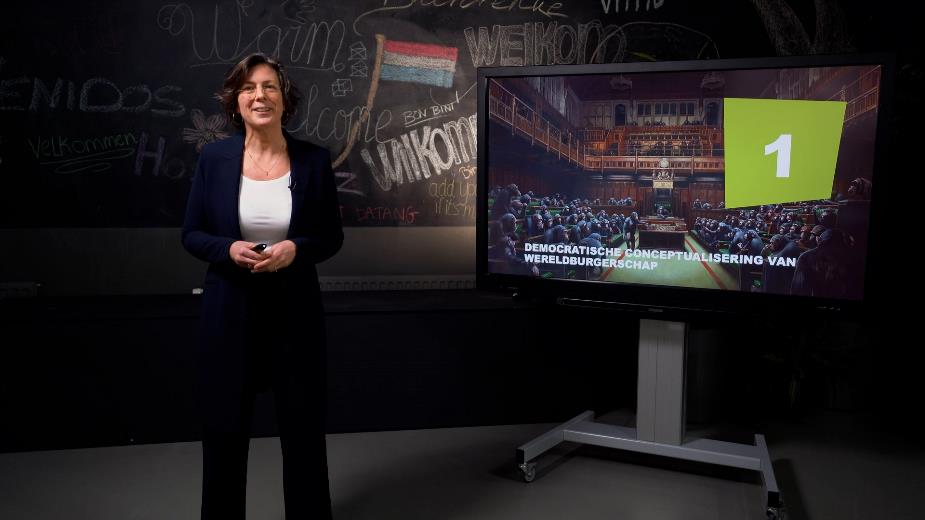Inaugural lecture of Laurence Guérin: The democratisation of global citizenship
19 February 2021
The world is globalising and transnational challenges, such as climate change and migration, affect every global citizen. Global citizenship is a core theme at THUAS. But what is it exactly?

The world is globalising and transnational challenges, such as climate change and migration, affect every global citizen. Global citizenship is a core theme at THUAS. But what is it exactly? “Democracy and global citizenship are controversial concepts. Students and lecturers have to give their own meaning to the definition of global citizenship. That’s what makes this so fascinating.”
Laurence Guérin has been professor of Global Citizenship at The Hague University of Applied Sciences since 1 March 2019. On Thursday 18 February 2021 Laurence presented her online inaugural lecture ‘Beyond Global Citizenship: working and living in the global village’.
Magic potion
“When I switched to Citizenship after completing my degree in Educational Theory, I felt like Obelix who had fallen into the cauldron of the magic potion. I immediately fell in love with the themes of Sustainable Development and Citizenship Formation. Social issues are often complex. The interesting question is how we can equip our students with tools to develop their own opinion, participate in public debates and work with others to resolve contemporary issues.”
Aha moment
“I experienced a real aha moment when I fell into the magic potion,” Laurence continues. “In education, citizenship is often translated too simplistically and presented as moralising and shaping our behaviour. We have to give students enough space in education to create their own definition of their (global) citizenship. After all, our students are citizens already.”
Controversial
Laurence explains that THUAS is committed to preparing students for a globalising world. But global citizenship is a controversial concept. “It’s not very well defined, but a topic of ongoing discussion.” Laurence believes that the definition of global citizenship in the educational framework can certainly be interpreted much broader. “We can do much more than is defined in the educational framework. The framework focuses on the moral aspect of global citizenship. However, that removes the legal and political aspects. The curriculum has reduced it to an inter-cultural skill and personal development.”
Three lines of research
The research group focuses its research activities on three main areas:
- Global citizenship as a controversial concept in the curriculum
- The meaning of global citizenship in vocational education
- Rights, duties and participation as a driver for global citizenship.
Thought framework
The professor of global citizenship states that as an educational institution, we must recognise that global citizenship is controversial. “Students and lecturers have to give their own meaning to the definition of global citizenship. We have developed a menu for this purpose, a kind of thought framework. I call that the democratisation of the concept. It’s not something imposed from above, but defined by the student and the lecturer.”
Profession and global citizenship
In vocational education, citizenship can have an extra function, such as the social function of researching a profession, indicating the social field in which a profession is found, discussing professional ethical issues or interdisciplinary cooperation around issues that play both a global and a local role. In our case we want to give our students a very broad base to become a responsible professional in the future.
Inaugural lecture
Together with associate professor Carien Verhoeff and members of the research group, Laurence presented the research lines of the Global Citizenship research group in her inaugural lecture. She also gave us an impression of the diversity of global citizenship. Her lecture also provided an extensive overview of the issue ‘Rights and participation as central core concepts of global citizenship’.
Watch it again
You can rewatch the inaugural lecture via the YouTube channel of the Global & Inclusive Learning Centre of Expertise.